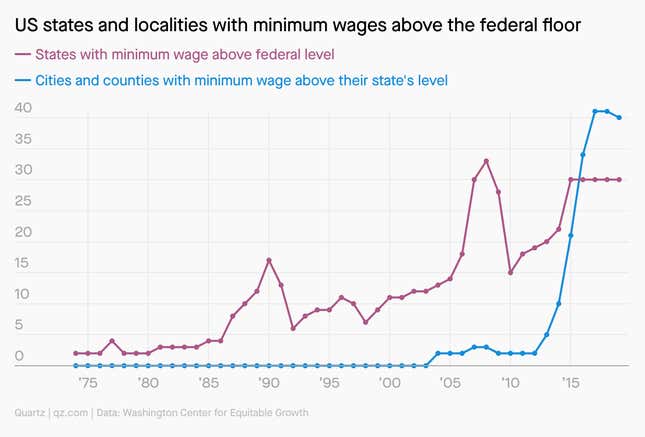Good morning, Quartz readers!
Here’s what you need to know
China emits more than all other developed countries put together. A new report highlights the difficulties China will have in meeting its emissions targets.
Covax is getting 350 million doses of the Novavax vaccine. Deliveries will start in the third quarter of this year, although the shot has yet to be authorized by any country. Meanwhile, Pfizer and BioNTech agreed to donate jabs for all Olympic and Paralympic participants.
India’s government is sending more oxygen to New Delhi’s hospitals. The country’s Supreme Court had ordered the increase after 12 Covid-19 patients died last week when a hospital ran out of oxygen for 80 minutes.
European Commission president Ursula von der Leyen said the EU is “ready to discuss” vaccine patent waivers. However, Germany isn’t on board, and the US proposal still leaves much to be resolved.
Russia approved a single-jab version of the Sputnik V vaccine. Dubbed “Sputnik Light,” backers claimed one dose had 79.4% efficacy, compared to 91.6% efficacy for two shots.
China sales boosted Volkswagen Group’s first-quarter performance. A healthy recovery in the automaker’s largest single market helped it post after-tax profit of €3.4 billion ($4.1 billion).
Tesla wants to let Chinese owners see their data. The automaker said it is building a platform for drivers to access the data generated by their vehicle’s cameras and sensors.
What to watch for
DraftKings, the popular online sports betting platform with 1.5 million users, reports its first-quarter earnings today before the stock market opens in the US. Wall Street expects the company to report revenue of $236 million, which would be double what it generated in the same period last year. That’d be the second straight quarter of DraftKings doubling its revenue year-over-year.
A lot of that has to do with the pandemic. But the larger trend is clear: Online sports betting, which was once seen as taboo in the US, is rapidly going mainstream. Nearly half of US states have now legalized sports betting, and DraftKings is available in 12 of those states, representing 25% of the US population. The company has made deals with virtually every major pro sports league, and could soon be integrated into your TV screen.
Investors are bullish about the daily fantasy sports industry because it’s still so young—and is only going to get bigger. New York announced plans last month to legalize mobile sports betting, while other states are expected to follow soon, despite the potential for future gambling problems experts warn against.
Charting the minimum wage debate
The debate over the wisdom of having a minimum wage remains contentious in Washington DC. Economists have plenty of case studies to test what works best: Twenty-nine states now have a higher minimum wage than the federal government.

🚫 The main argument against a nationwide $15-an-hour minimum wage is that it would make labor too expensive for poorer areas, prompting employers there to shed jobs. As the debate continues, some argue that adjusting the federal minimum wage to local economic conditions would be more appealing to lawmakers than a blanket hike.
📈 A growing amount of research suggests that job shortages wouldn’t be the case, however. Most importantly, the federal minimum wage has not been increased since 2009. While in 1960, the federal minimum wage was roughly half of the median wage, today, it is roughly one-third.
Have you heard?
💻 “Google has traditionally followed Apple’s lead from a privacy standpoint, and particularly since they’re under regulatory pressure as it is, they’re probably going to make moves that put themselves in the best possible light,” —Matt Voda, CEO of adtech firm OptiMine. (Want to know why Google will have to make its own decision for users in Asia and Africa? Read about its grip on the keys to user privacy.)
👶 “Our first focus will be to expand our global fertility footprint.” —Elisabeth Weis, commercial lead on fertility for Organon, a new company being spun off from Merck, during a recent investor day. Merck deprioritized its IVF business several years ago, but opportunities in markets like China will give it renewed focus. (Want to learn more about the business of fertility? We’ve got a field guide for that.)
🧧“There isn’t one country around the world in which we’ve engaged where I don’t think that they’re anticipating a future that isn’t one of a digitized fiat currency.” —PayPal CEO Daniel Schulman, who said shifts in digital behavior that took off during the pandemic are unlikely to fall off in a post-Covid world. (A what currency?? Learn more by reading about China’s push for a digital yuan.)
✦ Keep up with the changing world of business with our members-only field guides. Don’t have a membership? There’s an easy fix for that: try it for free!
You asked about vaccine patent waivers
Will more vaccines be made available now that the US supports vaccine IP waivers?
It’s complicated. President Joe Biden’s declaration of support for the suspension of intellectual property rights on Covid-19 vaccines is a major, even unprecedented step. But it doesn’t guarantee what sort of waivers will eventually be negotiated—or when.
The World Trade Organization (WTO), where the waivers will be hammered out, requires unanimous approval from its members, and at least one major bloc of wealthy nations—the European Union—is as yet undecided.
Next month, India and South Africa, the two countries that have led the call for patent waivers, will circulate a revised proposal of their recommendations to WTO members. Countries will haggle over this draft. Will the waivers be restricted to just the “recipe” for the vaccines? Will big vaccine firms like Pfizer and AstraZeneca get to keep their manufacturing and technical know-how if they wish, rendering the waivers essentially meaningless? Or will governments exercise their power to push their companies into “tech transfer” arrangements?
Additionally, every patented vaccine uses a host of underlying technologies, all of which the manufacturer has licensed from other patent holders. Will a patent waiver for a vaccine automatically include waivers for underlying patents as well?
To discuss and negotiate all of this might take months, trade lawyers said. And the pharma industry will still be pushing to narrow the scope of these waivers as much as possible.
Handpicked Quartz
💉 Why is India, the world’s largest vaccine producer, running short of vaccines?
🤯 Facebook’s oversight board blew up in its face
🥱 Is your empathy exhausting you?
🧪 Indian states offer lessons in how to squeeze more vaccine shots out of each vial
🌽 American drivers are saving the corn ethanol industry—for now
👗 Africa’s fashion industry has its first dedicated investment company
🥘 The pandemic forced these three restaurants to pivot, now they’re thriving with meal kits
🩺 How Indian doctors abroad are helping their country fight Covid
Surprising discoveries
Scientists trained bees to sniff out Covid-19 infections. The idea is buzzy, but may not be practical.
Sharks navigate using the Earth’s magnetic field. Just how they do it is still a mystery.
Microsoft makes $0 from selling Xboxes. Any profit comes from taking a cut of the games sold on its platform.
Nasdaq’s computers can’t handle Berkshire Hathaway’s soaring stock. They weren’t designed to store such big numbers.
Smell training can lead to better brainstorming. A new workshop explores the link between scent and creativity.
Our best wishes for a productive day. Please send any news, comments, Tesla data, and Berkshire Hathaway shares to hi@qz.com. Get the most out of Quartz by downloading our iOS app and becoming a member. Today’s Daily Brief was brought to you by Samanth Subramanian, Adam Epstein, Liz Webber, and Jordan Lebeau.
